'It's a dog-eat-dog world': Inside the British racing scene's fight for sponsors
How much money do teams need? How do they find sponsors? And is it really tougher today than before? We asked those who are always on the hunt
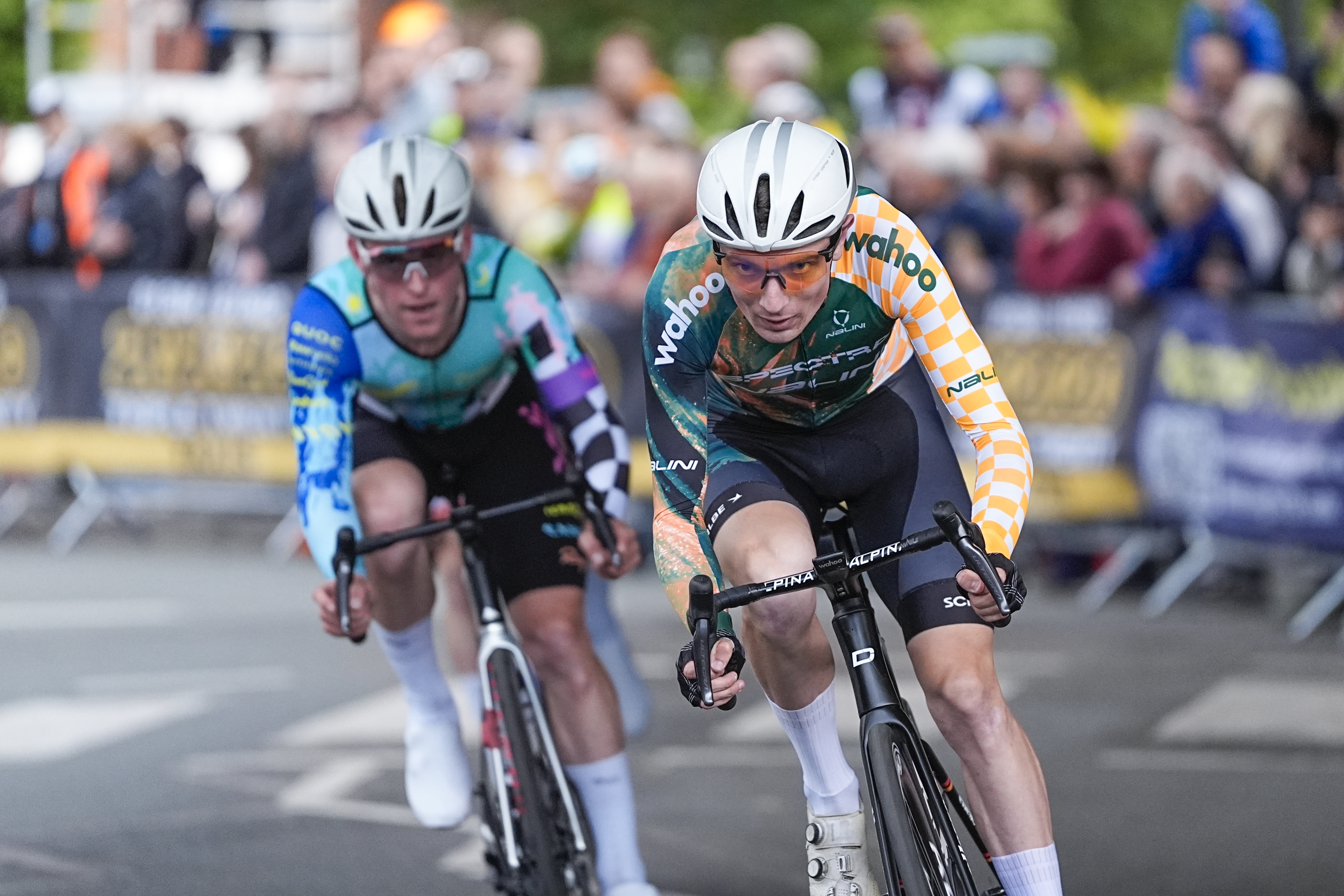

“I have mine and then you have yours, don’t you?” says Josh Hand. The owner of British elite squad Spectra Racing p/b DAS is comparing strategies for finding sponsors with his team manager, Gina Ball. “Yours tend to be more successful,” he admits. “I tend to use LinkedIn as a huge research platform, and then it comes down to essentially cold emailing.”
Hand then looks across to Ball, and passes her the proverbial microphone. “The last few sponsors that I’ve brought in,” she starts, “I’ve genuinely just DMed them on Instagram through the team account, and it’s fallen to the right person at exactly the right time.” It’s a point that’s so important, she repeats it again for emphasis: “It’s just finding the right person at the right time.”
Cold emails, Linkedin posts and Instagram messages are just some of the ways British cycling teams have set about striking new sponsorship deals, in what is proving to be a continually challenging hunt within the scene.
It’s a struggle that has punctured some of the top domestic teams. Next year, there stand to be no British men’s Continental squads for the first time since 2004, after the collapses of Saint Piran and Trinity Racing, both of whom cited sponsor woes in their demise. It was a similar story for Lifeplus-Wahoo on the women’s side, too, who will be absent from the peloton in 2025, having been unable to find a naming rights partner.
In the tier below Continental, elite racing squads are also stalling in finding new deals.
“I wouldn’t say it’s more challenging this year than in the past, but it’s just always a definite level of incredibly challenging,” says Spectra owner Hand. Founded in 2021, Hand’s squad runs a multi-discipline calendar, with road racing in the warmer months and cyclo-cross in the winter. His ideal budget, he says, is around £60,000 for the year. But with just weeks to go until the new season, he’s less than halfway to that target. “We’re probably more like 30%, to be honest,” he says.
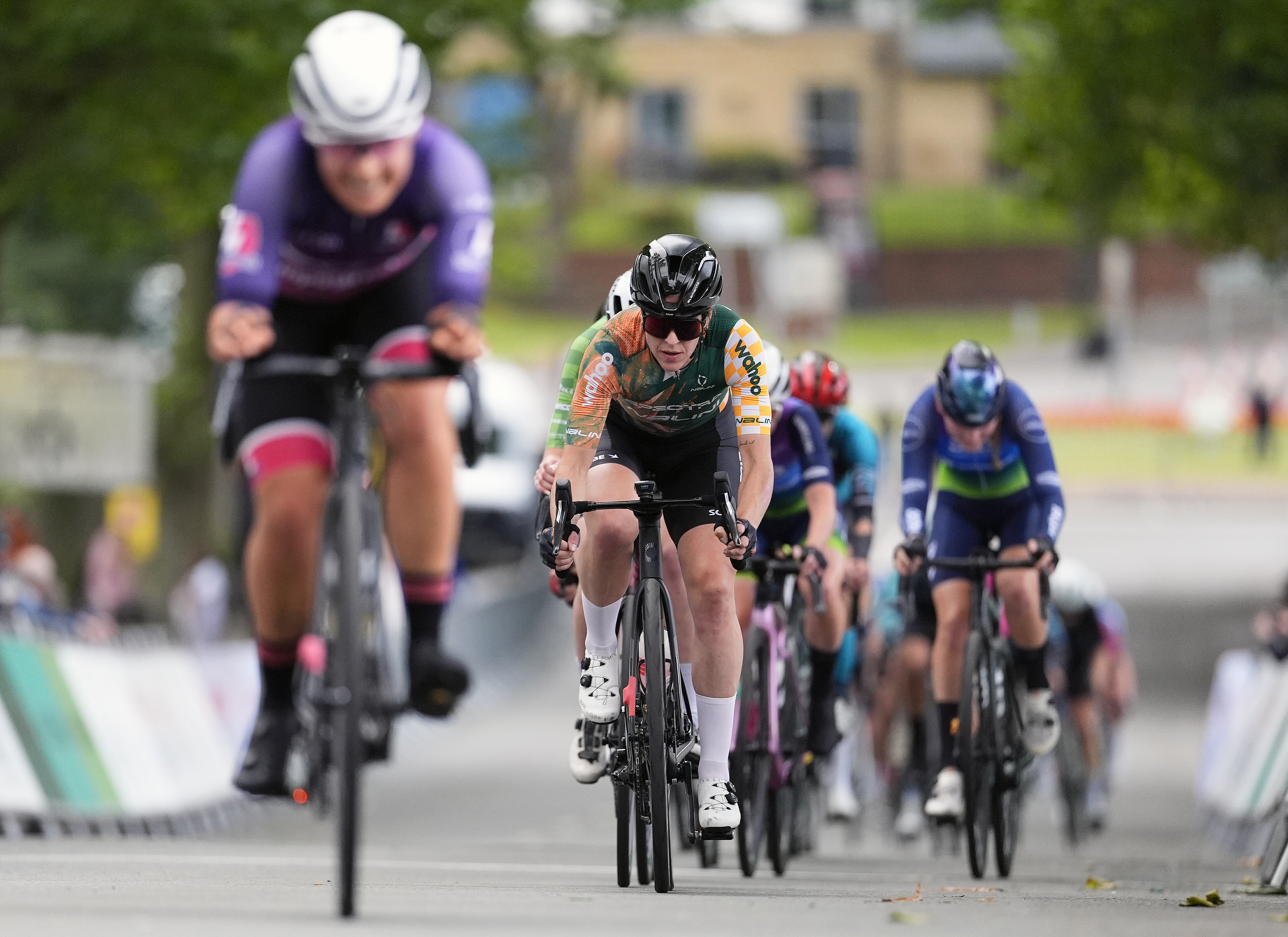
Part of the problem for elite British teams is visibility. Spectra compete in the National Road and Circuit Series, the uppermost tier of racing in the UK, which has seen its number of events slowly shrink since the turn of the century. Next season, there will be seven road races in the women’s series and six in the open category, none of which will be televised. The Tour Series – a calendar of circuit races which were broadcast on ITV but ceased in 2023 – already feels like a distant memory.
Get The Leadout Newsletter
The latest race content, interviews, features, reviews and expert buying guides, direct to your inbox!
“[The Tour Series] was perfect for teams like us, because we got that ability to say that we were going to get TV time,” says Spectra manager Ball. “When it went, it completely reduced what we were able to sell.”
The dwindling number of races, too, has taken its toll. Andy Lyons, manager of elite men’s team Richardsons Trek DAS, remembers a time when you’d need more than two hands to count the number of top-level races in the UK. Now, he says, “there’s minimal publicity”.
“You’ve got to have something to sell a sponsor if you’re going to go out to them,” Lyons says. “The UK scene needs something we can shout about. It needs a big stage race, not just the [Tour of Britain] where the WorldTour teams come across. It needs something for the UK teams to go for.”
Next year will mark 16 years since Richardsons Trek DAS first formed. To run each season, Lyons estimates his 10-rider squad needs around £30,000-£40,000, which goes towards kit costs, race entries, accomodation and travel to and from events. “And that doesn’t include bikes,” he adds.
It’s a wonder why, in almost two decades, a team like Richardsons Trek DAS has not tried to step up to Continental level. The financial leap, it turns out, is substantial. “You’d need £250,000 as a minimum to think about going Conti,” Lyons explains – seven times his current budget – “and what’s the point in trying to go to a sponsor and try and get £250,000 when there’s no TV and no races?
“Don’t get me wrong, it’s great to have some races, but when you’re finishing in the middle of nowhere at six o’clock on a Sunday evening and there’s no spectators for the biggest races in the UK, how are you going to sell that to a sponsor?”
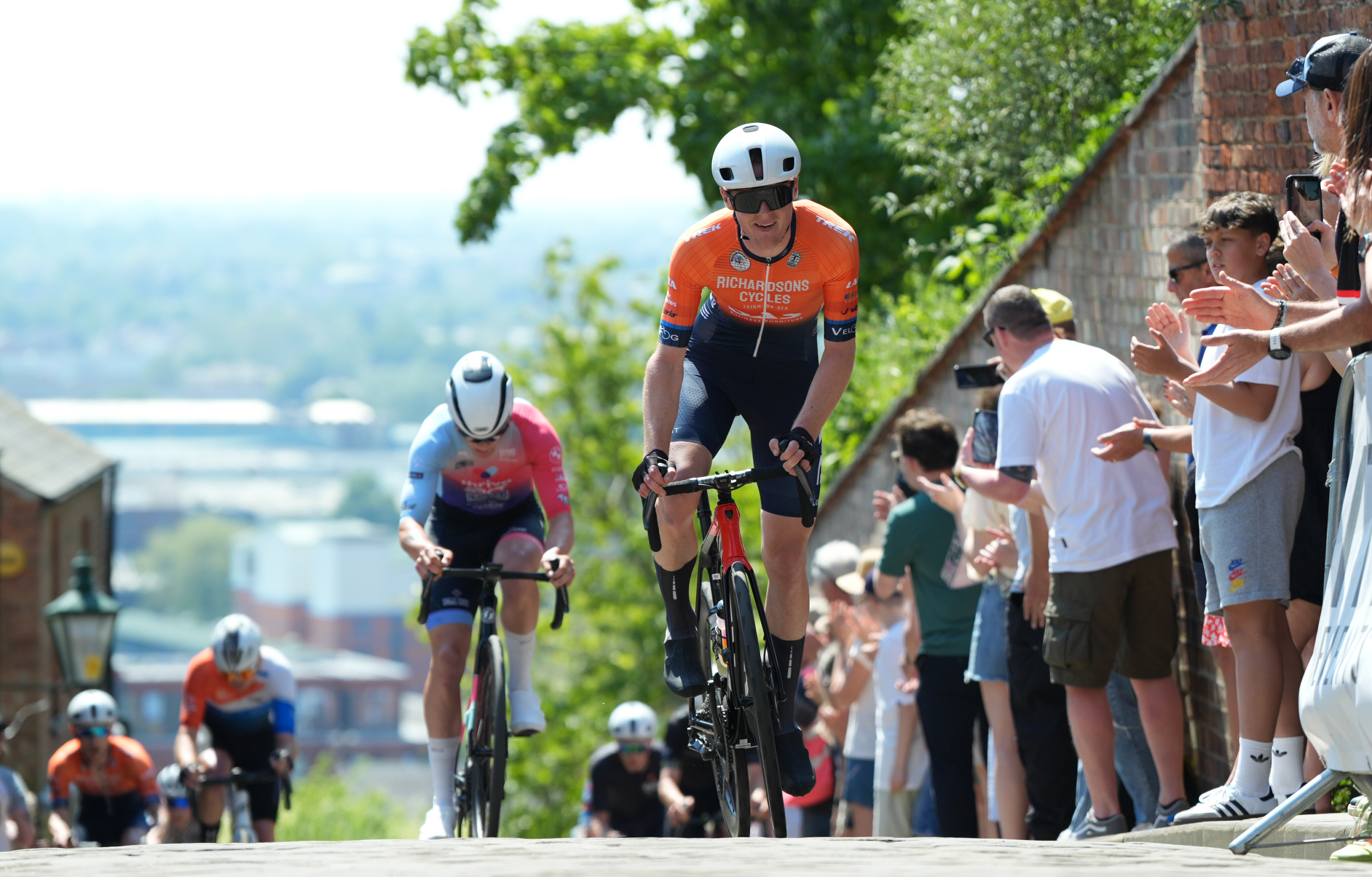
So how exactly do teams go about marketing themselves to sponsors? “We’re no different to many sports,” says Christine White, head sports director at women’s Continental team Doltcini O’Shea. “When the economy is challenged, sports teams are chasing the same pound, whether it’s rugby, football, cycling or cricket.”
Hannah Farran-Rees, a rider for Phoenix Collective and former co-manager of Team Boompods, says she’d typically begin conversations with potential sponsors around June, six months before the new season. “Our goal was to sign riders by August or September, and have everything finalised by November,” she says.
“Over my seven years co-managing Boompods, we’ve seen sponsorship opportunities become progressively more difficult to secure. Traditionally, cycling shops played a key role in sponsorship, but the recent economic downturn has significantly impacted them.”
The cycling industry’s woes have not helped the process. Today, more bike shops are closing down than are opening. A lingering post-pandemic slump, combined with overstocking, has hit businesses hard, both small and large alike.
What this means is that teams are looking for support from outside of the industry. “There’s no money in cycling companies,” says Spectra manager Ball. “It’s all in other industries. It’s about finding the person to speak to in those industries and praying that they’re a cycling fan.”
Sometimes this can be serendipitous. In August this year, faced with the threat of his team folding, the manager of Continental squad Pro-Noctis-200º Coffee-Hargreaves Contracting, Rick Lister, emailed a company whose name he saw on the side of a lorry to ask for sponsorship. “Eventually I got an email back from him, and it turned out he was a cyclist,” Lister said. A deal was happily struck.
Spectra boss Hand prefers to do his research before. “I try to find somebody who’s got an interest in cycling, which is usually stated on a profile somewhere,” he says, “even if it’s a profile picture of them riding a bike. That’s at least an in.”
A post shared by Team Boompods (@teamboompods)
A photo posted by on
For those companies who are already within cycling, Hand says, it becomes a “dog-eat-dog world” between teams. “Everybody wants what everybody else has got.” But there are a few golden rules.
“We try not to go after people who are sponsoring other teams, because that’s not fair on them,” the Spectra owner explains. “Or, if they’re sponsoring an event, we don’t go after them, because we don’t want to take money away from an event that’s obviously good for the sport.”
The same applies for companies who used to sponsor teams who folded. People often think this would open up “free money”, Hand says, but such an assumption is false. Once a deal hasn’t panned out as they hoped, and a company loses their faith in cycling sponsorship, “that business is completely untouchable,” he says.
And yet, there are times when everything comes together. Sometimes the cold emailing pays off, the Linkedin post rouses curiosity, and the Instagram message falls to the right person. The grey clouds quickly disappear. Then, Richardsons Trek DAS boss Lyons says, it’s a matter of harnessing “loyalty and friendship”.
“You’ll see that most of these teams rely on just loyal sponsors, people that really love the sport and are happy to chip in,” he says. “There’s not much commercial payback if you sponsor a UK, or any, cycling team. They do it because they love the sport.”
It's that love of the sport that drives the team managers and owners, too. Every year, the hunt for sponsors is the same. It's showing no signs of getting easier. And still, every year, they go after it, fuelled by passion and determination, a desire to keep racing alive. “We do what we do to the best we can,” says Lyons. “We just need the scene to pick up.”

Thank you for reading 20 articles this month* Join now for unlimited access
Enjoy your first month for just £1 / $1 / €1
*Read 5 free articles per month without a subscription

Join now for unlimited access
Try first month for just £1 / $1 / €1

Tom joined Cycling Weekly as a news and features writer in the summer of 2022, having previously contributed as a freelancer. He is fluent in French and Spanish, and holds a master's degree in International Journalism. Since 2020, he has been the host of The TT Podcast, offering race analysis and rider interviews.
An enthusiastic cyclist himself, Tom likes it most when the road goes uphill, and actively seeks out double-figure gradients on his rides. His best result is 28th in a hill-climb competition, albeit out of 40 entrants.
You must confirm your public display name before commenting
Please logout and then login again, you will then be prompted to enter your display name.
-
 Madison Flux short sleeve jersey review: functional and affordable
Madison Flux short sleeve jersey review: functional and affordableThe road cycling jersey delivers top performance for a budget-conscious cyclist
By Hannah Bussey
-
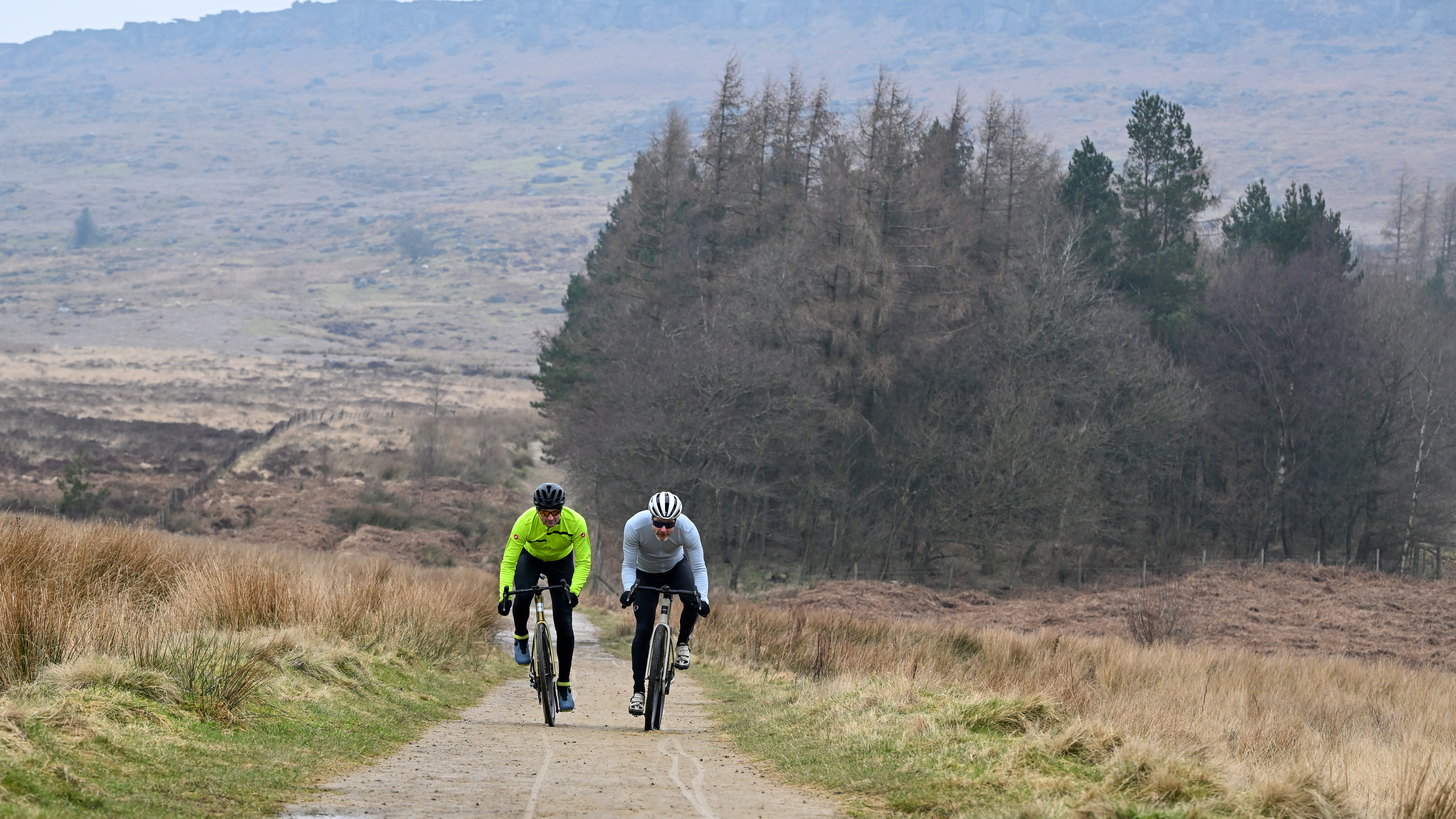 I pitched a top-end all-road bike against a top-end gravel bike, here's what I found
I pitched a top-end all-road bike against a top-end gravel bike, here's what I foundMulti-surface machines go head-to-head-to-head and categories clash as Tim Russon rolls up for the ultimate do-it-all bike showdown
By Tim Russon
-
 No new investment for National Series in British Cycling task force update
No new investment for National Series in British Cycling task force updateRoad and circuit series funding to continue at around £180,000
By Tom Davidson
-
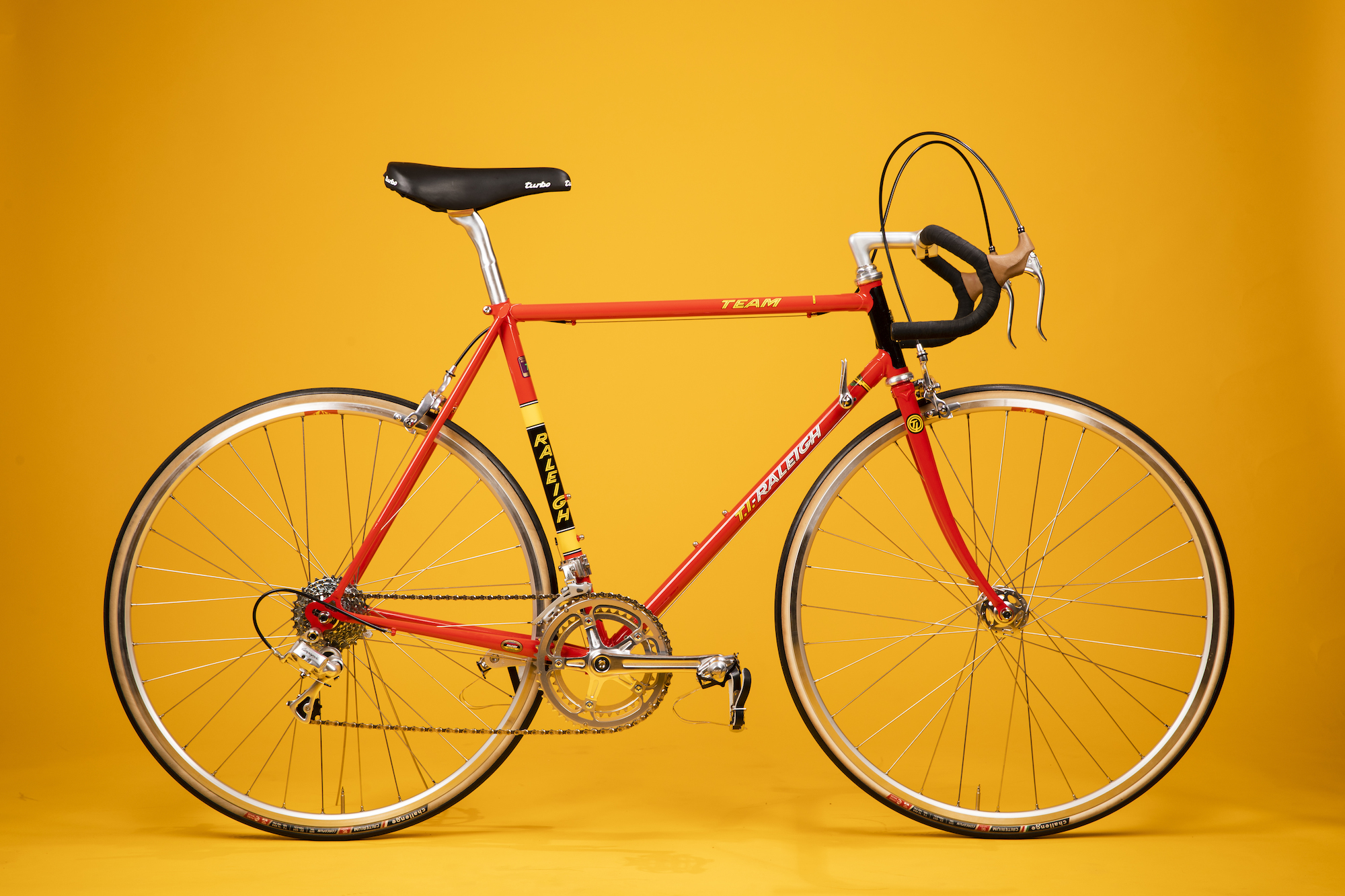 Beloved British bike maker reports £30m loss
Beloved British bike maker reports £30m lossTurbulent industry conditions push Raleigh deep into the red
By Tom Davidson
-
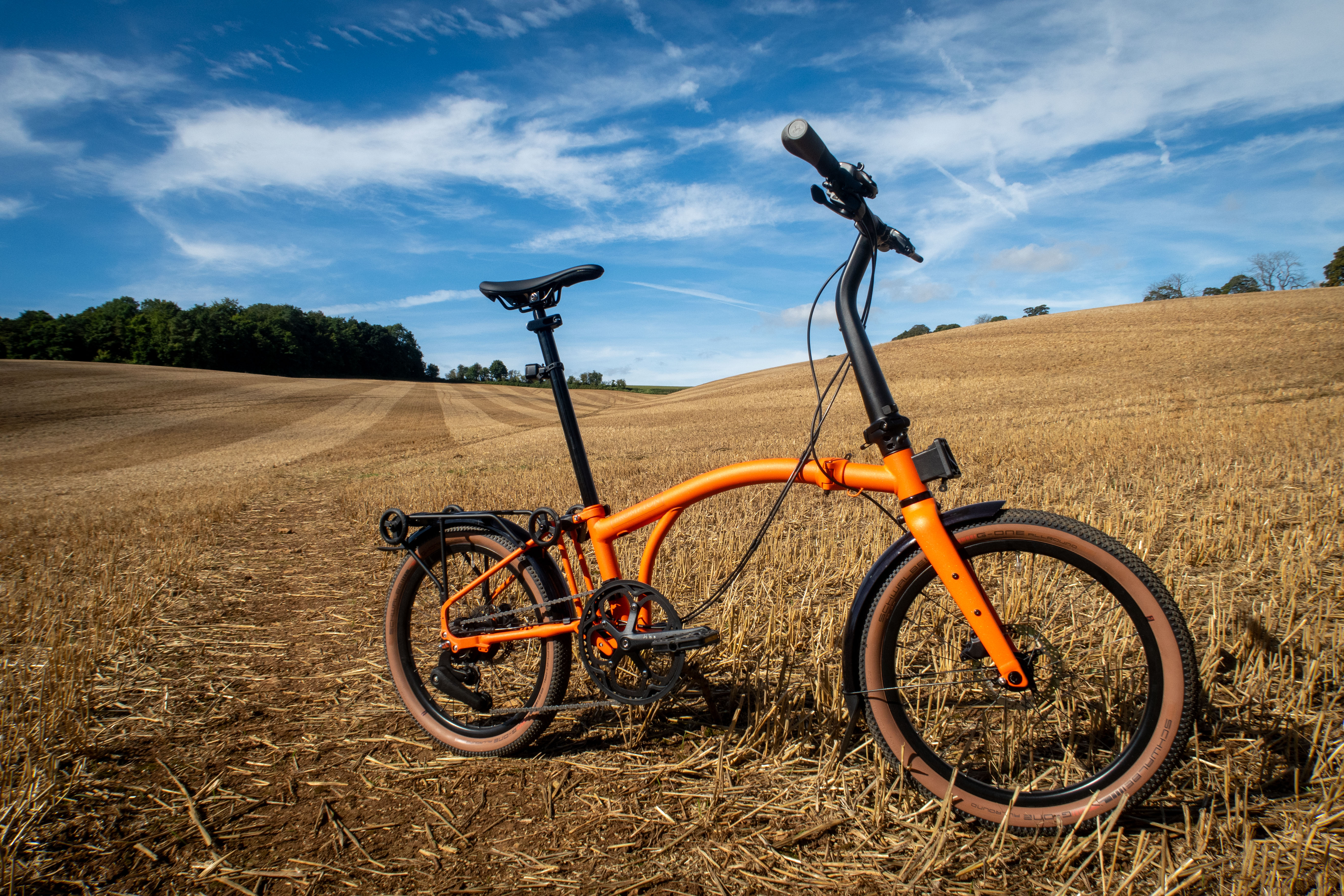 Brompton profits plummet from £10.7m to £4,600 as industry 'turmoil' continues
Brompton profits plummet from £10.7m to £4,600 as industry 'turmoil' continuesFolding bike company sold fewer bikes than expected in 'challenging year'
By Tom Davidson
-
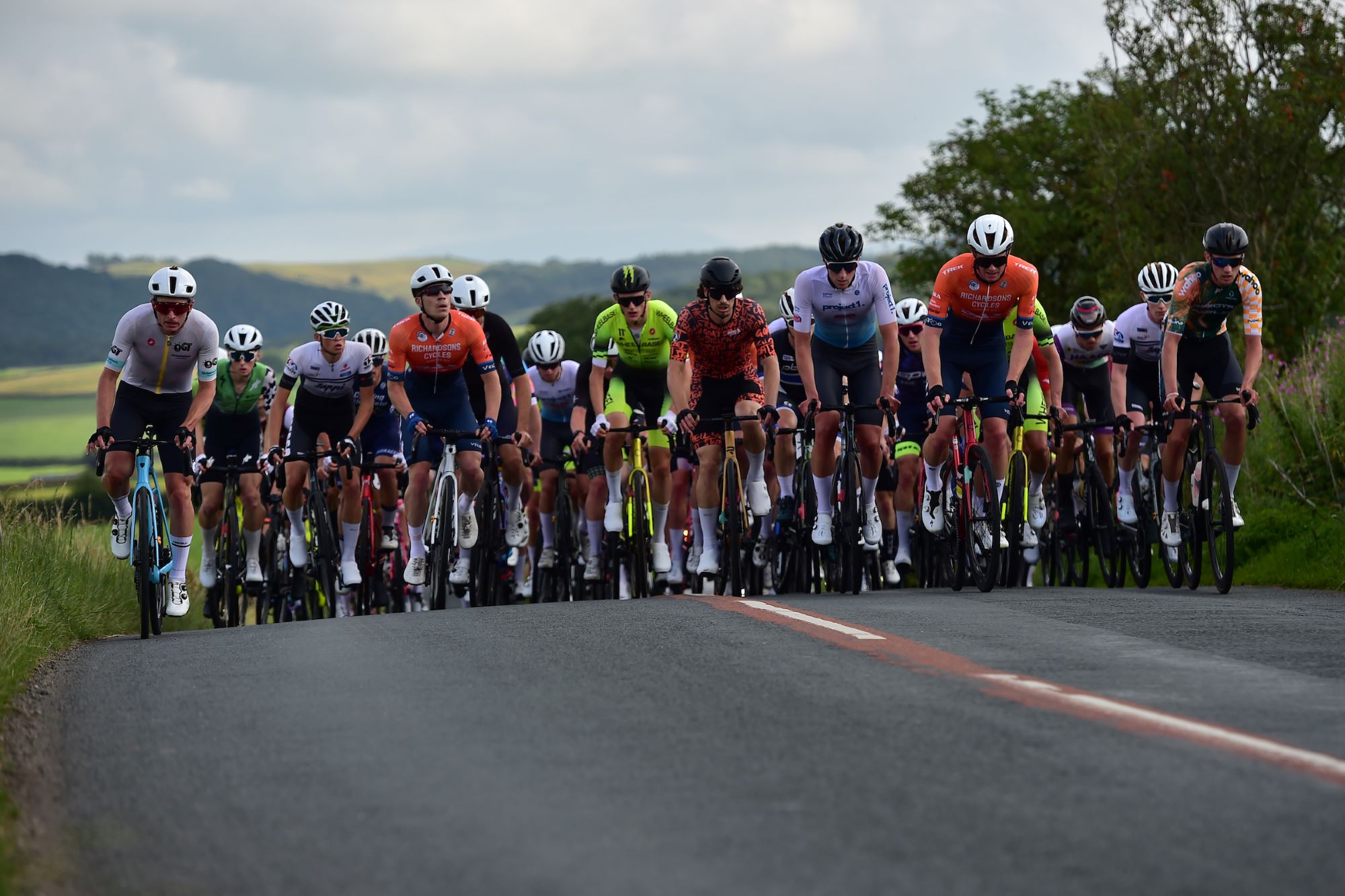 South west round of the British National Road Series an exciting chance to showcase an 'under-represented' region, say local riders and organisers
South west round of the British National Road Series an exciting chance to showcase an 'under-represented' region, say local riders and organisersBritish Cycling announced last week that National Road and Circuit series will visit the south west of England in 2025
By Tom Thewlis
-
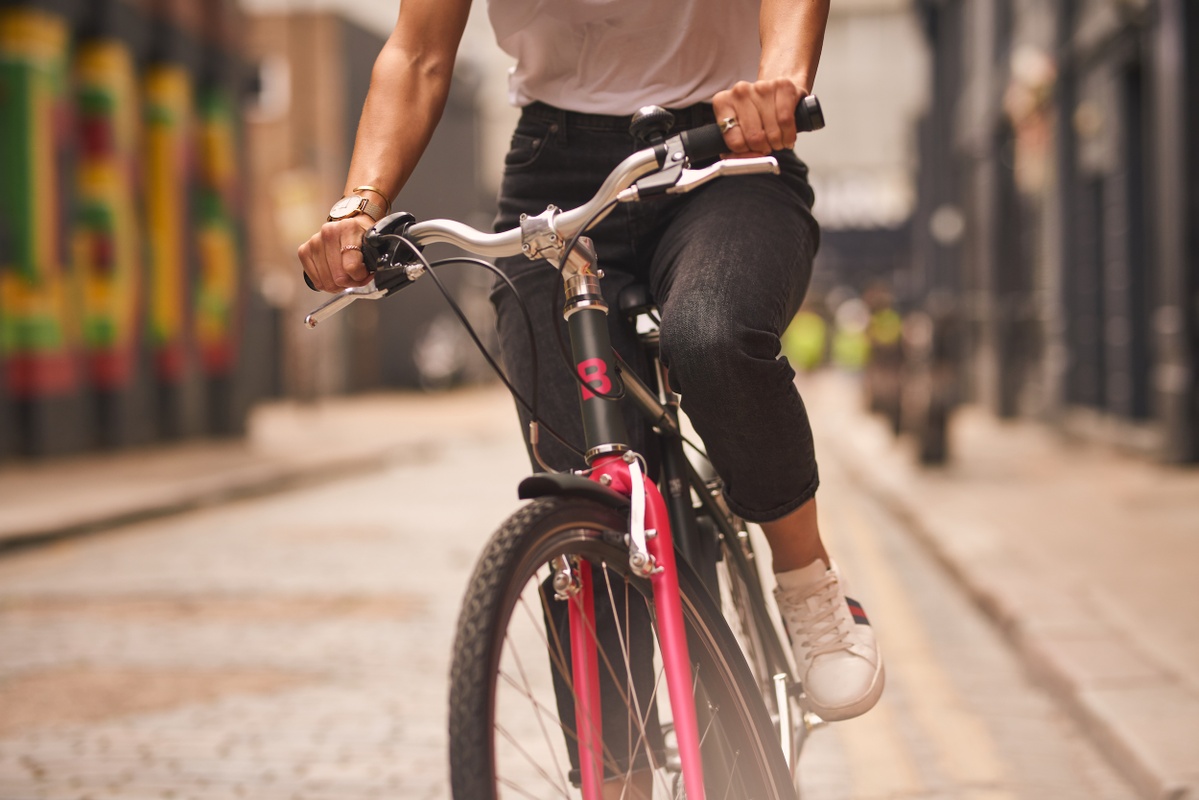 Bike subscription business to close due to 'escalating costs'
Bike subscription business to close due to 'escalating costs'Buzzbike has operated in Manchester and London since 2016, but will halt its fleet this week
By Tom Davidson
-
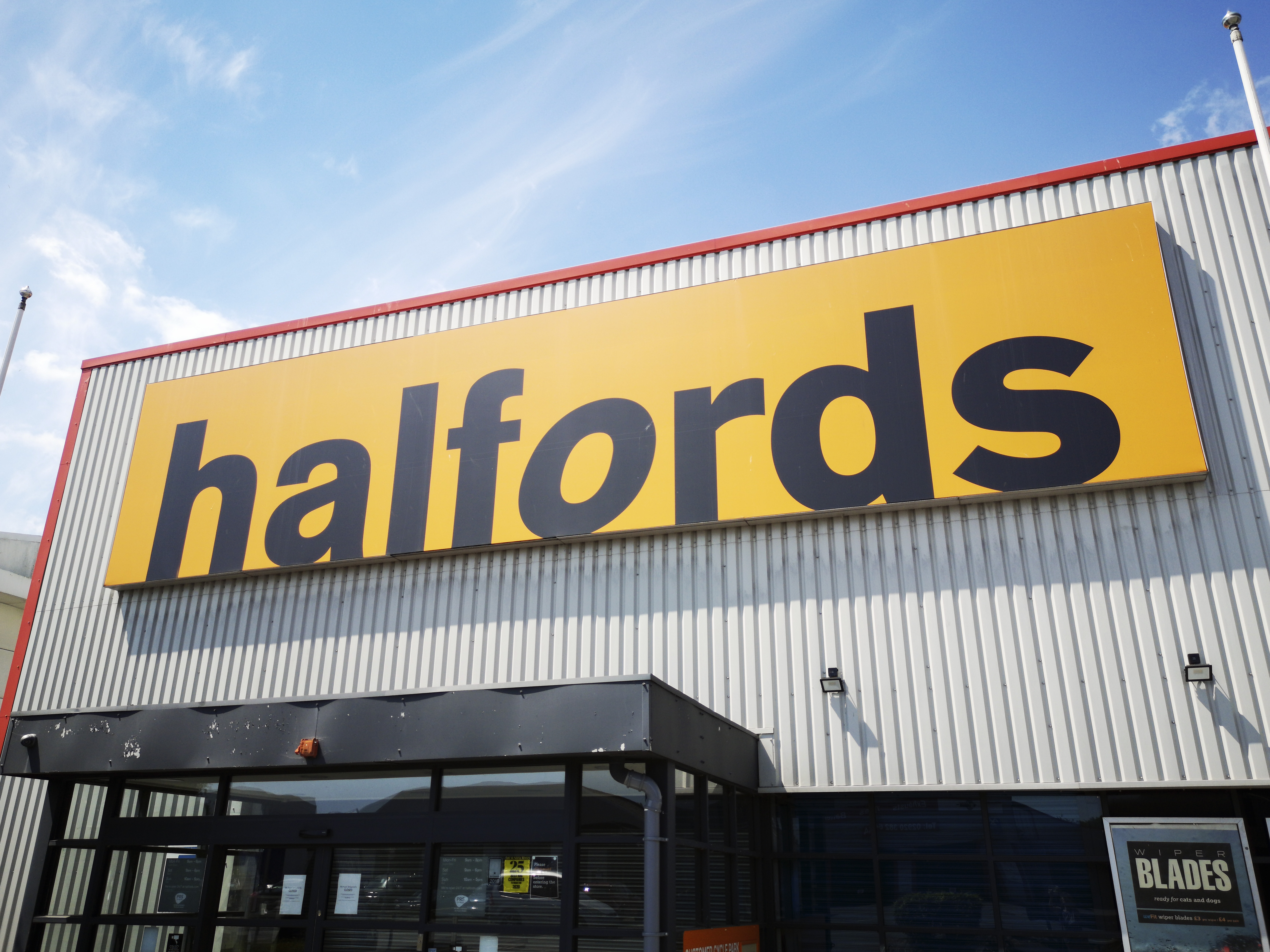 'Decline in cycling' cited as Halfords profits fall
'Decline in cycling' cited as Halfords profits fallStore chain sees profits drop 25% year-on-year
By Tom Davidson
-
 Rapha focused on increasing 'profitability and resilience' as losses deepen by over £10 million, meaning seven years in the red
Rapha focused on increasing 'profitability and resilience' as losses deepen by over £10 million, meaning seven years in the redThe British brand have not posted a pre-tax profit since 2017
By Adam Becket
-
 Major bike retailer posts profits despite 'downward trend' in cycling industry
Major bike retailer posts profits despite 'downward trend' in cycling industryTredz records £1.4m profit after parent company Halfords issues warning
By Tom Davidson